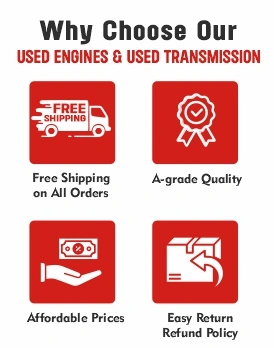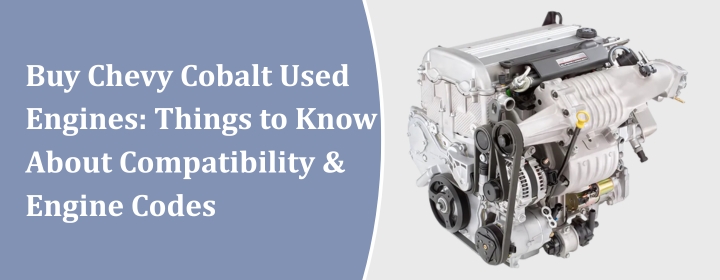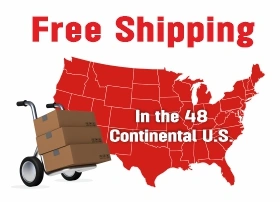Recent Blogs
- Benefits of Buying Used Engine Parts Instead of New
- Used Engine Warranty Claims: Why They Get Denied & How to Avoid It
- Best Used Transmissions for Trucks and SUVs
- How to Choose a Quality Used Engine: A Buyer’s Checklist
- Top 7 Most Reliable Engines Worth Buying Used in 2026
- What Mileage Really Means When Buying a Used Engine in 2025
- Buying a Used Engine in 2025: A Complete Buyer’s Guide to Avoid Costly Mistakes
- How to Choose the Right Used Engine in 2025: A Complete Buyer’s Guide
- Why Used Engines Are the Smartest Fix for Budget-Conscious Vehicle Owners
- Safety, Trust and Buyer Beware: The Hidden Risks of Buying Used Engines & Car Parts Online

Used Engines for Sale
- ACURA Engine
- AUDI Engine
- BMW Engine
- BUICK Engine
- CADILLAC Engine
- CHEVROLET Engine
- CHRYSLER Engine
- DODGE Engine
- FIAT Engine
- FORD Engine
- GMC Engine
- HONDA Engine
- HUMMER Engine
- HYUNDAI Engine
- INFINITI Engine
- ISUZU Engine
- JAGUAR Engine
- JEEP Engine
- KIA Engine
- LANDROVER Engine
- LEXUS Engine
- LINCOLN Engine
- MAZDA Engine
- MERCEDES Engine
- MERCURY Engine
- MINI Engine
- MITSUBISHI Engine
- NISSAN Engine
- OLDSMOBILE Engine
- PONTIAC Engine
- PORSCHE Engine
- SAAB Engine
- SATURN Engine
- SCION Engine
- SUBARU Engine
- SUZUKI Engine
- TESLA Engine
- TOYOTA Engine
- VOLKSWAGEN Engine
- VOLVO Engine
Used Engines for Sale
View More
Buy Chevy Cobalt Used Engines: Things to Know About Compatibility & Engine Codes
Let’s be honest. Replacing a blown engine sucks. You’re not trying to buy a brand-new car; you just want your Cobalt back on the road. That’s where a used engine comes in. It’s cheaper and works just as well. But here’s the problem: not all Chevy Cobalt engines fit every Cobalt. Looks don’t matter here. What matters is the engine code.
People mess this up all the time. They go online, search buy Chevy Cobalt used engines, and grab the first cheap one they find. A week later, it’s at the shop and the mechanic’s trying to find what’s wrong with it.
Before you throw money at a used motor, slow down. Check what you’ve got under the hood. Look at engine codes. Ask the right questions. This isn’t just shopping. It’s matching parts like a puzzle. And if one piece doesn’t line up, you’ve wasted time and cash.
Why Understanding Compatibility Matters
You might have a 2006 model, but someone else has a 2008 both say Cobalt on the back. But the engines don’t swap clean. Different mounts, sensors, and harnesses. Chevy made updates in between years, even mid-year sometimes.
So when you see Chevy Cobalt used engines for sale don’t assume it’ll fit just because it says Cobalt. That’s not how this works. Your car’s engine works in coordination with everything. The computer (ECU), transmission, dash, and any infotainment all work in sync with the engine. Swap in the wrong one, and nothing lines up.
Worse, if you find out after installing it, that’s a nightmare. You either return it (if the seller allows) or pay a mechanic to modify half the car. And those mods cost more than the engine did in the first place.
The Importance of Engine Compatibility When Buying Used
Used engines aren’t hard to find. The hard part is finding the one that works in your car without creating problems. You need the same year, same engine size, and same engine code.
You might see listings that say fits 2005–2010,” but don’t fall for that. Always ask for the original vehicle and the year the engine came out. Even if it’s the same 2.2L Ecotec, there are tiny differences that mess up installation.
Your Cobalt might have a different emissions setup or maybe a different throttle body. Maybe a wiring harness with one less pin. That’s all it takes for the check engine light to never turn off.
Understanding Chevy Cobalt Engine Codes
Now here’s the part nobody tells you upfront, “the engine code.”
- The engine code is not related to the size of the engine. It’s a three-letter code that tells the exact version of the car you are driving.
- Chevy has been using codes like L61 and LE5 for many years. And a few others in Cobalt’s.
- L61 is older, shows up in 2005–2006
- LE5 is the 2.4L usually sports models
- LAP came later with different internals, sensors
- If your car has an L61, and you drop in an LE5, the engine mounts won’t fit right. The ECU won’t work with the engine. And your wiring harness will need changes.
Don’t just ask what size engine. Ask for the code. No matching code, no deal. That’s how tight this has to be.
How to Find Your Current Engine Code
So now you’re wondering where the heck to find that code. It’s not hard, but it’s also not in plain sight.
- Pop the hood. Look around the front or back of the engine block usually near the oil filter or intake. Might be a small stamp like “L61” or “LE5”, is not always easy to see.
- Can’t find it there? Use your VIN. The 8th character tells you which engine you’ve got. Run it through a VIN decoder. Or call a Chevy dealer and ask them to confirm the code.
- If you haven’t found it yet. Look for the emissions sticker under the hood. Sometimes the code’s printed right there.
Whatever you do, don’t guess. This is one of those things you verify before spending a dime.
Tips to Ensure Compatibility When Buying Used
Alright, once you’ve got your engine code, here’s how you play it safe:
- Match the code exactly, even one letter off is one big mistake.
- Ask for the donor vehicle’s VIN. That helps confirm what year and model it came from.
- Get mileage info, fewer than 100k is good. The lower the better.
- Ask for a compression test or startup video. If it ran before pull-out, that’s peace of mind.
- Don’t buy from someone who won’t answer basic questions. That’s a red flag.
Also, work with your mechanic. Send them the engine listing before you buy. They’ll tell you fast if it’s a good match or a disaster waiting to happen.
What to Look for in a Used Chevy Cobalt Engine
Condition matters. Even if it’s the right code, a trashed engine is still a bad engine. Here’s what to check:
- No cracks, leaks, or busted parts
- No rust around seals
- Clean oil – not sludgy or burnt
- No coolant mixed in with oil – that means head gasket trouble
- Spark plugs pulled? Look for even wear
Also, ask where the engine came from. A wrecked car is okay. A flooded one is not. Engines pulled from dry, running cars are what you want. Avoid anything that sat too long or came out of a fire sale yard with no paperwork.
Also Read: Top 5 Essential Tips for Buying Used Engines in Florida
Conclusion
If you’re ready to buy Chevy Cobalt used engines, slow down and get it right the first time. This is not a simple online checkout. This is matching the exact puzzle piece your car needs to run. Used engines are solid when they match. With Used Engine Part, you don’t have to ask for proof, VINs, tests, or history. It will be provided to you without any delay.
Know your engine code & the year in which the car was made. Ask questions to confirm fitment. Chevy Cobalt used engines for sale are everywhere. But only a few will truly fit your car without problems. Be picky & sharp. That’s how you save money and drive away without stress.
FAQs
1. Where is the engine code on a Chevy Cobalt?
Stamped on the engine block or found using your VIN
2. Can a 2.4L engine fit into a car that had a 2.2L originally?
No. Not without major wiring and mount changes
3. What’s a good mileage range for used Cobalt engines?
Ideally under 100k miles, but condition matters more
4. Do sellers offer any warranty on used engines?
Some do. Usually 30 to 90 days. Ask before buying.




